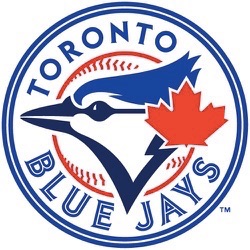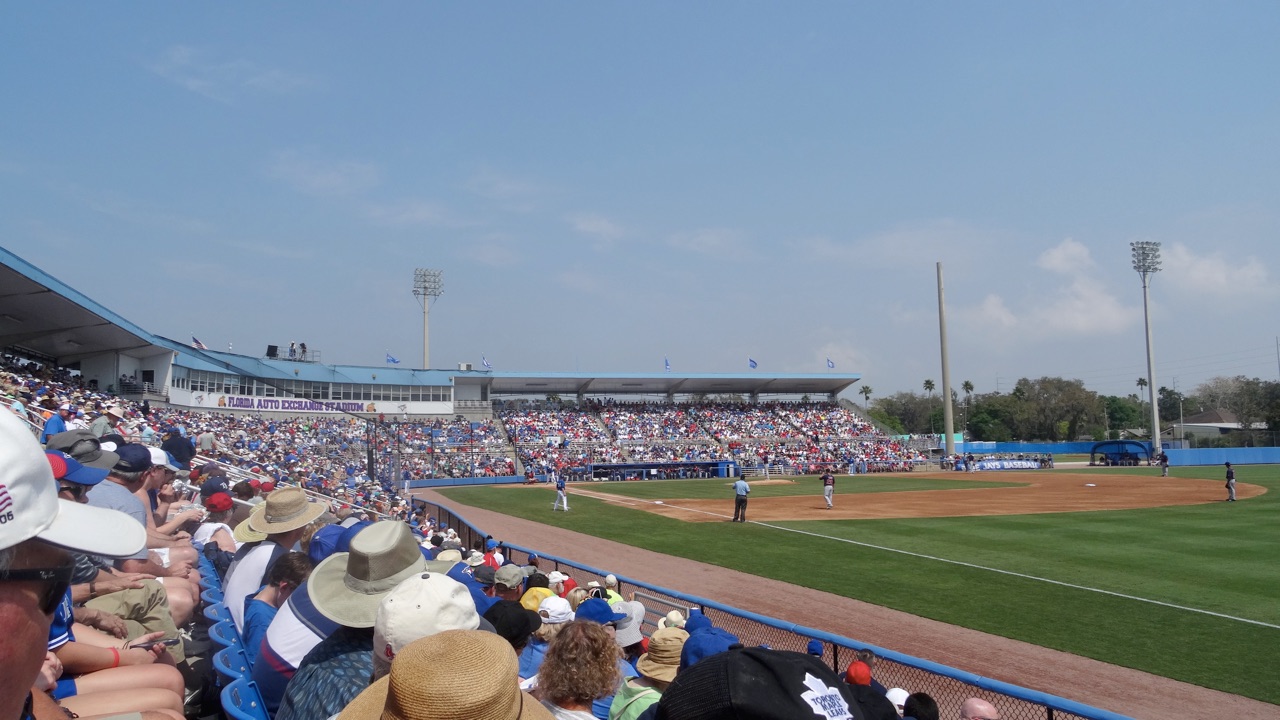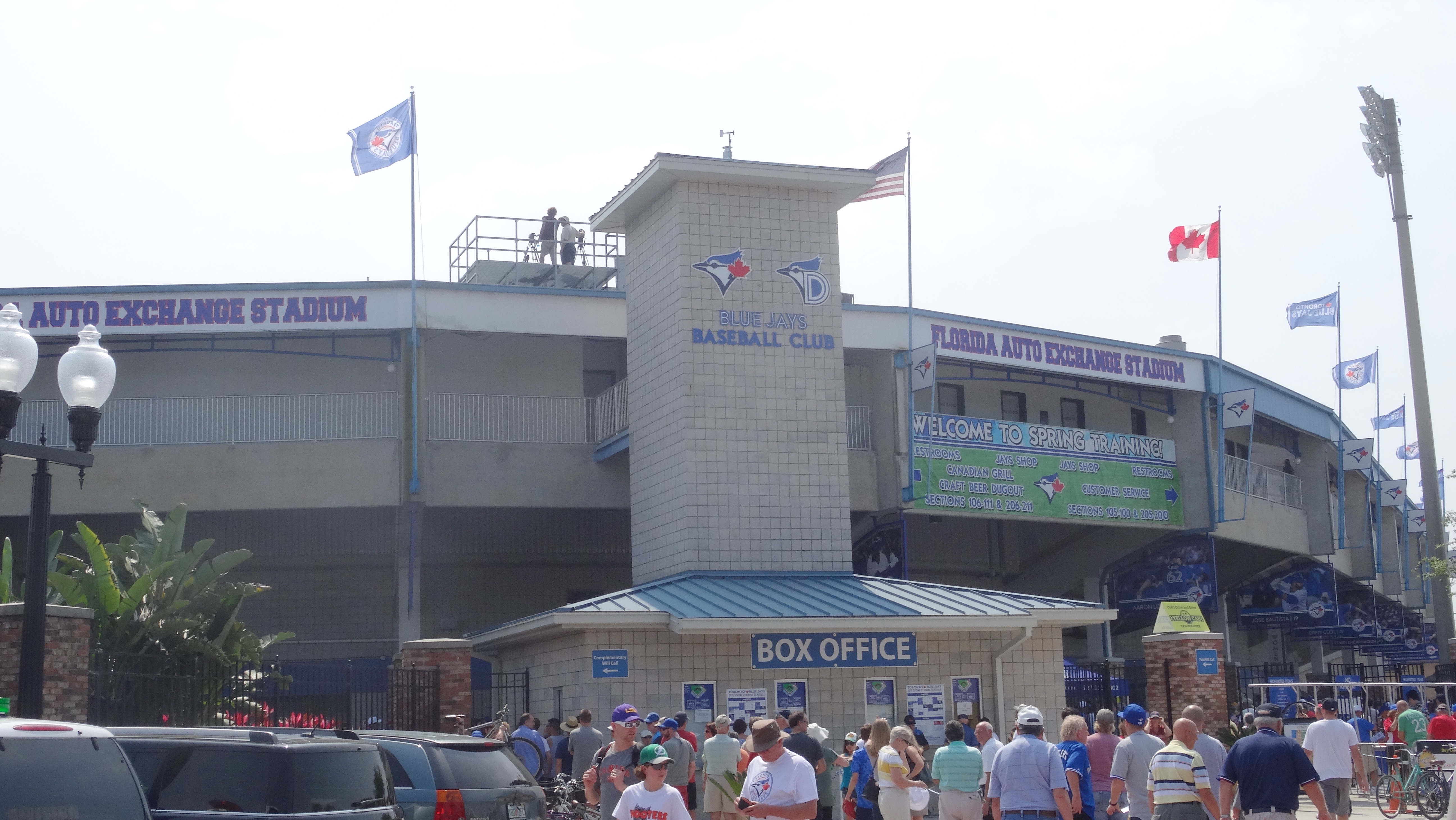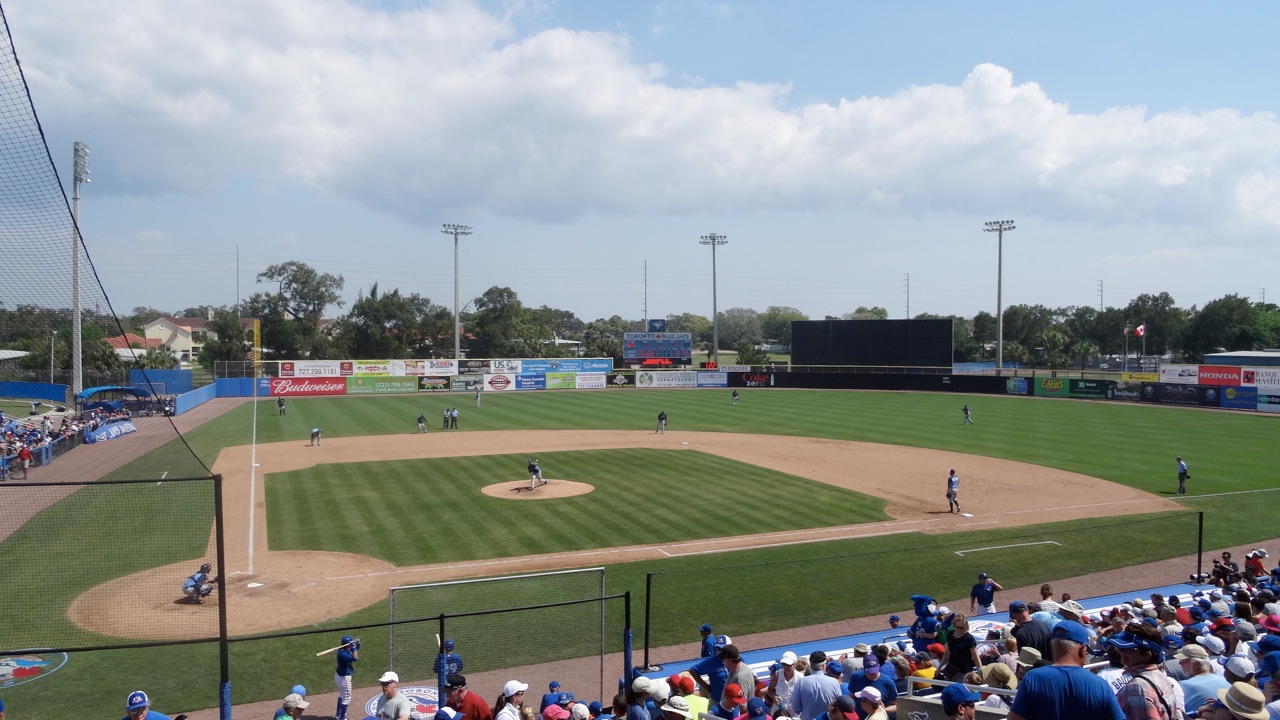 With its unwieldy name adorning the façade of a stark exterior, Dunedin’s Florida Auto Exchange Stadium does not make an aesthetically pleasing first impression, and it lacks many of the amenities that fans and players have come to expect. Despite those disadvantages, the ballpark offers an intimate charm in a city that is full of it—making it one of Florida’s best game-day experiences for Toronto Blue Jays spring games and Dunedin Blue Jays (High Class A; Florida State League) matches.
With its unwieldy name adorning the façade of a stark exterior, Dunedin’s Florida Auto Exchange Stadium does not make an aesthetically pleasing first impression, and it lacks many of the amenities that fans and players have come to expect. Despite those disadvantages, the ballpark offers an intimate charm in a city that is full of it—making it one of Florida’s best game-day experiences for Toronto Blue Jays spring games and Dunedin Blue Jays (High Class A; Florida State League) matches.
The site of Florida Auto Exchange Stadium has been home to baseball since Grant Field opened in 1930. In 1977, the expansion Blue Jays set up camp at the ballpark for their inaugural season. Grant Field was replaced prior to the spring of 1990 by Dunedin Stadium, which was renovated between the 2000 and 2001 seasons, with most of the $12 million in construction costs going towards player amenities.
Sitting in a heavily residential section of Douglass Avenue that includes a library and an elementary school, the landlocked location causes some problems for the stadium: there is little on-site parking and the seating bowl, which is built for just over 5,500, gets cramped on crowded games. It also lacks the modern amenities fans have become accustomed to, including a videoboard and a 360-degree concourse.
These problems have left the relationship between Dunedin and the Blue Jays in question. After backing out of a partnership with the Houston Astros for a facility in West Palm Beach, the Blue Jays are reportedly working with new mayor Julie Ward Bujalski to build a new facility in Dunedin. The two sides are looking at either upgrading the current facility or building a new stadium just east of Florida Auto Exchange Stadium. However, neither site is large enough for a full complex, meaning that the minor league operations would remain at their current site on the city’s outskirts.
In the meantime, the Blue Jays are working with what they have to create a no-frills game day experience, resulting in a welcoming contrast from the hustle and bustle of most modern facilities. The concession and game day staff are consistently friendly, while there are some unique food and beverage offerings. Just to the left of the main gate is a grill tent, which features a large menu that includes staples such as hot dogs and burgers as well as seafood. On the third-base side of the concourse is the Craft Beer Dugout, an indoor bar that offers a wide selection of Florida-based ales. The main concessions are more limited in their offerings, but still provide relatively reasonable prices for Budweiser products, Labatt beer, and food options—including pizza—not available at the grill. On the souvenir side, the stadium includes two stores: a shop on the third base concourse and a newer store next to the grill.
The seating bowl itself is well-designed, with the levels above the center concourse offering a steep pitch that allows for good sight lines. Florida Auto Exchange Stadium also provides tremendous access for autograph seekers, as both teams have to walk down their respective foul lines—visitors on the third base, the Blue Jays down first base—to get from the clubhouse to the dugout.
Dunedin itself is also a wonderful town to visit. Fans willing to make the walk or ride a bicycle can forgo Florida Auto Exchange Stadium’s messy parking situation by parking downtown and taking the Pinellas Trail to Beltrees Street. The town’s vibrant bar and restaurant scene offers a variety of unique post-game options, while the Dunedin Marina makes for a scenic place to take in a great Florida sunset.
With its welcoming game day experience and setting in a unique city, Florida Auto Exchange Stadium overcomes its outdated features to serve as a relaxing change of pace from newer spring-training ballparks. Its disadvantages give the Blue Jays ample reason to look for something better, but hopefully any new ballpark will replicate the experience that makes their current facility so fan friendly.



